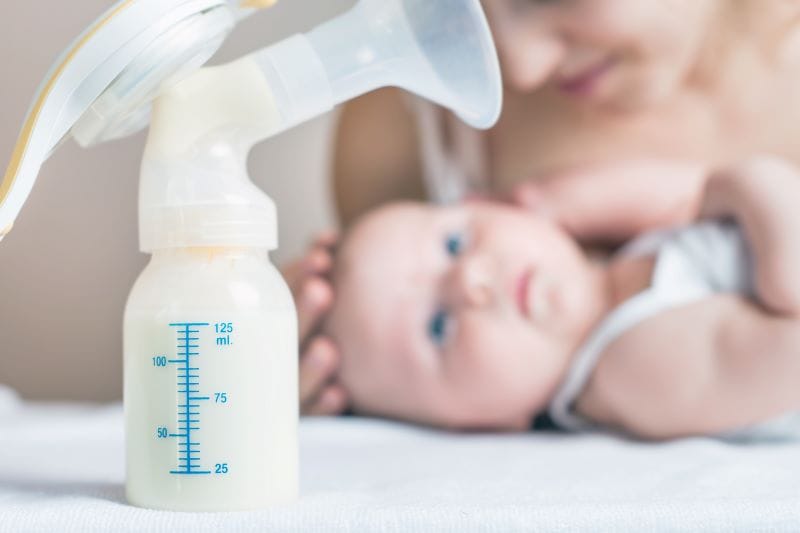Preparing to Pump? Here are 5 Common Breastfeeding Questions Answered by a Pro
Breastfeeding provides many bonding and health benefits for both mom and baby, and many moms may choose to pump, whether it be exclusively or times when they are away from the baby.
August is National Breastfeeding Awareness Month which aims at educating and celebrating breastfeeding moms. Lactation consultants are a great resource and can help moms navigate the breastfeeding journey, including best practices for pumping. Below are 5 of the most commonly asked questions our lactation team is asked at Johns Hopkins All Children’s Hospital.
Top 5 Breastfeeding Questions and Answers
Why do some parents choose to pump their milk instead of exclusively breastfeeding?
Some families choose to pump breast milk when their baby is unable to breastfeed due to health conditions. Other lactating parents prefer to pump and do not want to put their baby directly to breast. Some parents pump and bottle feed to know the exact amount their baby is eating and to share the responsibility of feeding them with other family members.
What are the benefits and challenges of pumping?
Pumping is a great option for families of sick babies. It allows the lactating parent to establish a milk supply until their baby can directly breastfeed. Also, pumping allows lactating parents to go back to work and still provide breast milk while maintaining their supply.
Challenges of pumping for some families may be affording the supplies to pump and finding the time to stay on the schedule that exclusive pumping requires. It can be difficult for parents to pump between caring for their children as well as finding a place to pump when they are not at home.
What type of supplies and support do parents need to be successful at pumping?
It is beneficial to have a double electric pump with all the necessary supplies it needs to work such as correctly sized flanges, tubing and connectors. You can buy a breast pump, or you may be able to get a pump through your health insurance.
Some families choose to use manual pumps if they do not have access to electric pumps. Bags and bottles are also needed for storing breast milk.
What’s your recommendation for keeping a milk supply going strong?
If a parent decides to pump, it is essential for them to start as soon as possible. It is recommended the lactating parent pump every three hours, even throughout the night, for a total of eight times in 24 hours.
Double pumping (pumping both breasts at the same time) is also important for your milk supply. Pumping often and consistently will keep your milk supply up.
Should families freeze milk, and how does it stay good in the freezer?
Fresh breast milk can be kept at room temperature for up to four hours. It is best to feed baby your freshly expressed breast milk first because it contains the most anti-infective properties.
After, you can refrigerate your milk for four days. Once you freeze your breast milk, it will be good for six months.
For more information about the benefits of breastfeeding, visit the Johns Hopkins All Children’s breastfeeding resource page.

Hannah Rose RN, BSN, IBCLC, is an International Board-Certified Lactation Consultant (IBCLC) and has been a lactation consultant at Johns Hopkins All Children’s Hospital since September 2022. Prior to her time at JHACH, she worked as a mother baby nurse assisting breastfeeding families for two and a half years.
Hannah earned her Associate of Science in Nursing degree at Keiser University and received her Bachelor of Science in Nursing degree at Ohio University. She found her passion for lactation when she began working with families who were breastfeeding.
She recently helped JHACH receive the IBCLC Care Award for displaying promotion, protection, and support of breastfeeding and is passionate about being able to educate, support and empower families throughout their lactation journey.
*Presented by Johns Hopkins All Children's Hospital | GettyImages-481447636


